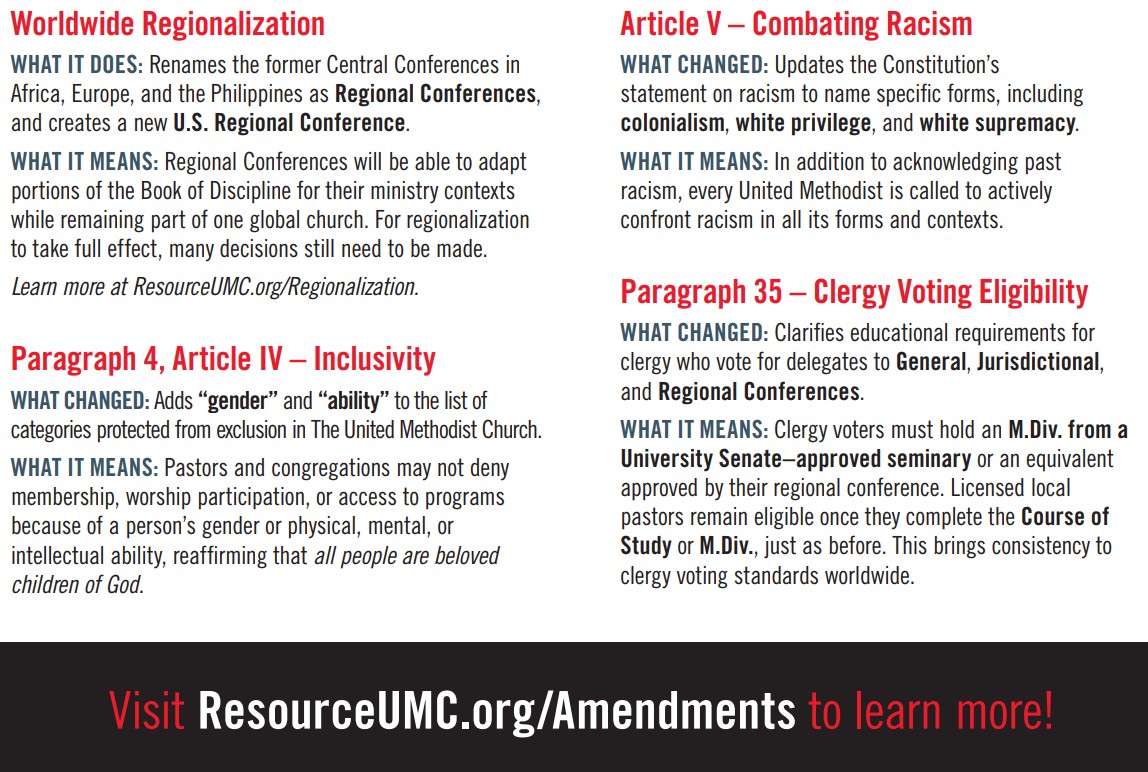During the General Conference in 2024, United Methodist clergy and laypersons from around the world gathered and voted on many resolutions and alterations to The Book of Discipline (BOD). Four amendments to the UMC constitution were approved last summer.
By the Discipline, any proposed constitutional amendments approved by the General Conference still require ratification by the annual conferences (there are currently 51 in the US and 75 in Africa, Europe, and the Philippines). Since GC2024, most of the annual conferences (including our Desert Southwest Conference) have voted on the amendments; these results have now been canvassed, certified and announced by the Council of Bishops.
On November 5, 2025, the UM Council of Bishops announced the results of the annual conference votes to date. Although not all conferences have voted yet, the COB has determined there are enough votes in favor of the amendments that all four will be ratified with the required two-thirds majority. While minor amendments to the constitution are not unusual, one of these new amendments (on regionalization) is considered particularly significant and historic because it changes the organizational structure of the denomination. Part of the intent behind these amendments is to make the Church more inclusive and more sensitive to cultures around the world.
For a general overview of the amendments, visit UMC Bishops finish Canvassing of Amendments; All Four are Ratified. The vote tallies are also listed on that page. When you look at the numbers, remember that they include the individual votes of the clergy and lay delegates from St. Matthew!
For FAQ and more specific details about the amendments, go to United Methodist Constitutional Amendments FAQ.
With today’s announcement of the annual conference votes, the four amendments become effective immediately.
“The ratification and certification of these constitutional amendments mark a defining moment in the continuing renewal and unity of The United Methodist Church. These amendments reflect the church’s rich diversity and deep commitment to live more fully into our shared mission to make disciples of Jesus Christ for the transformation of the world and strengthens our world-wide connection to serve faithfully and inclusively in every context,” said Bishop Tracy S. Malone, President of the Council of Bishops.


